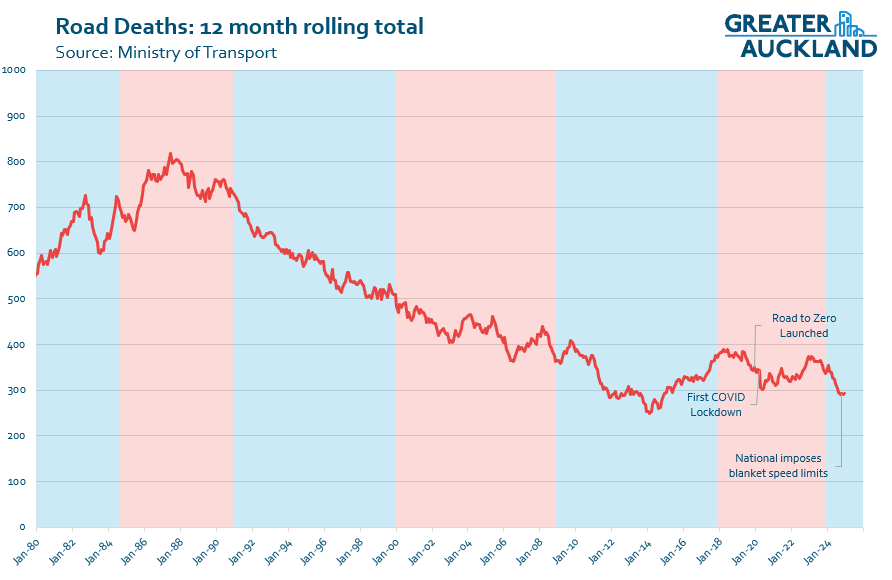Briefly
- Official statistics agencies are very conservative about survey questions, because changing them causes problems. Another example: in the last US census, the number of people reporting more than one ethnicity increased. The Census Bureau said
“These improvements reveal that the U.S. population is much more multiracial and diverse than what we measured in the past,” Census Bureau officials said at the time.
But does that mean there are more people now with the same sort of multiple heritage, or that the same people are newly identifying as multi-ethnic, or just that the question has changed? According to Associated Press, new research suggests it’s mostly measurement.
- “And surveys are especially useless when respondents have the option of answering in a way that is both “respectable” and self-flattering. ” Fred Clark, talking about a survey of ‘politics’ in religion in the US.
- Greater Auckland on last year’s road deaths. It’s a good post, with breakdown of subgroups and discussion of appropriate denominators and so it. I’d still ideally like to see random-variability shown in these sorts of trend lines. The simplest level of this, so-called Poisson variability, is fairly easy: you take a reported count, take the square root, add and subtract 1 to get limits, and square again. You don’t need to go to the lengths of full-on Bayesian modelling unless you want to make stronger claims

Thomas Lumley (@tslumley) is Professor of Biostatistics at the University of Auckland. His research interests include semiparametric models, survey sampling, statistical computing, foundations of statistics, and whatever methodological problems his medical collaborators come up with. He also blogs at Biased and Inefficient See all posts by Thomas Lumley »
Comments
Add a comment
First time commenting? Please use your real first name and surname and read the Comment Policy.
Good to see that StatsChat is back to chatting about statistics (sports predictions should be a different website with a different name).
Just wondering about the poisson approximation. Accidents are random so poisson but the number of deaths might not be since it is a compound distribution – deaths per accident is a different distribution. What do you think that distribution is and what is the compound distribution?
3 hours ago